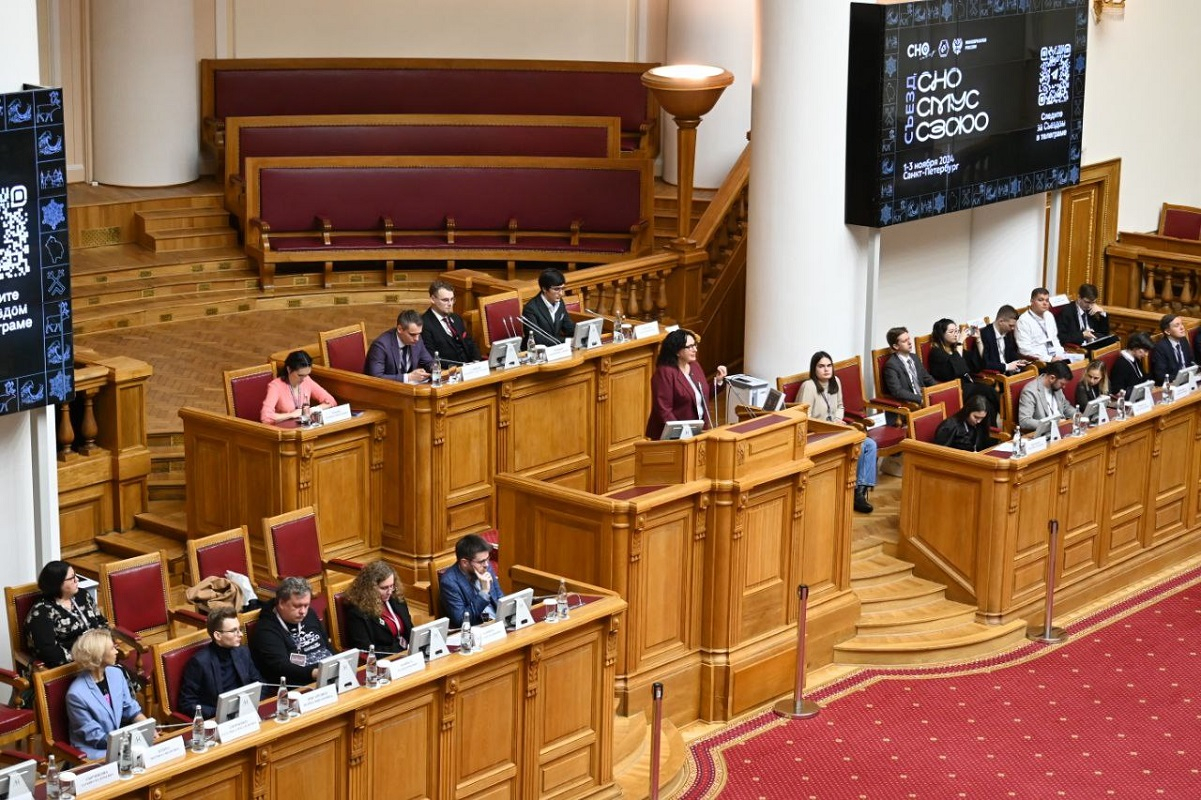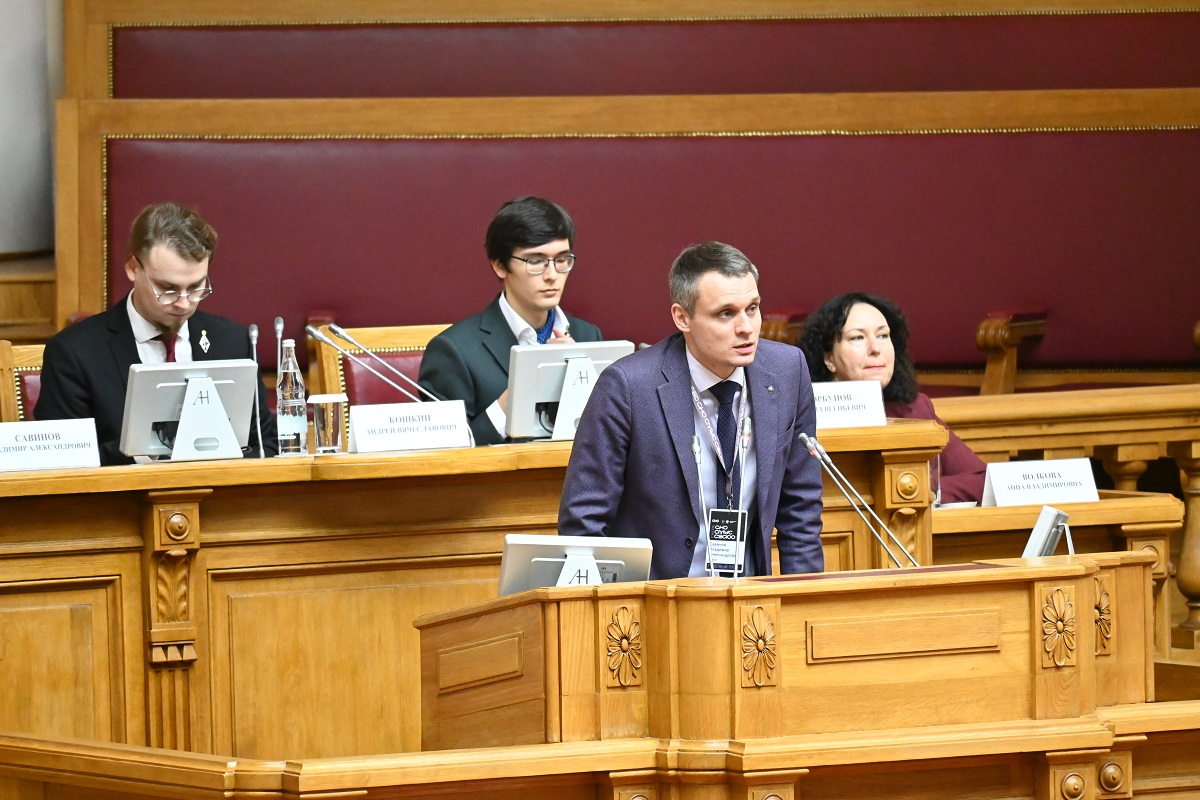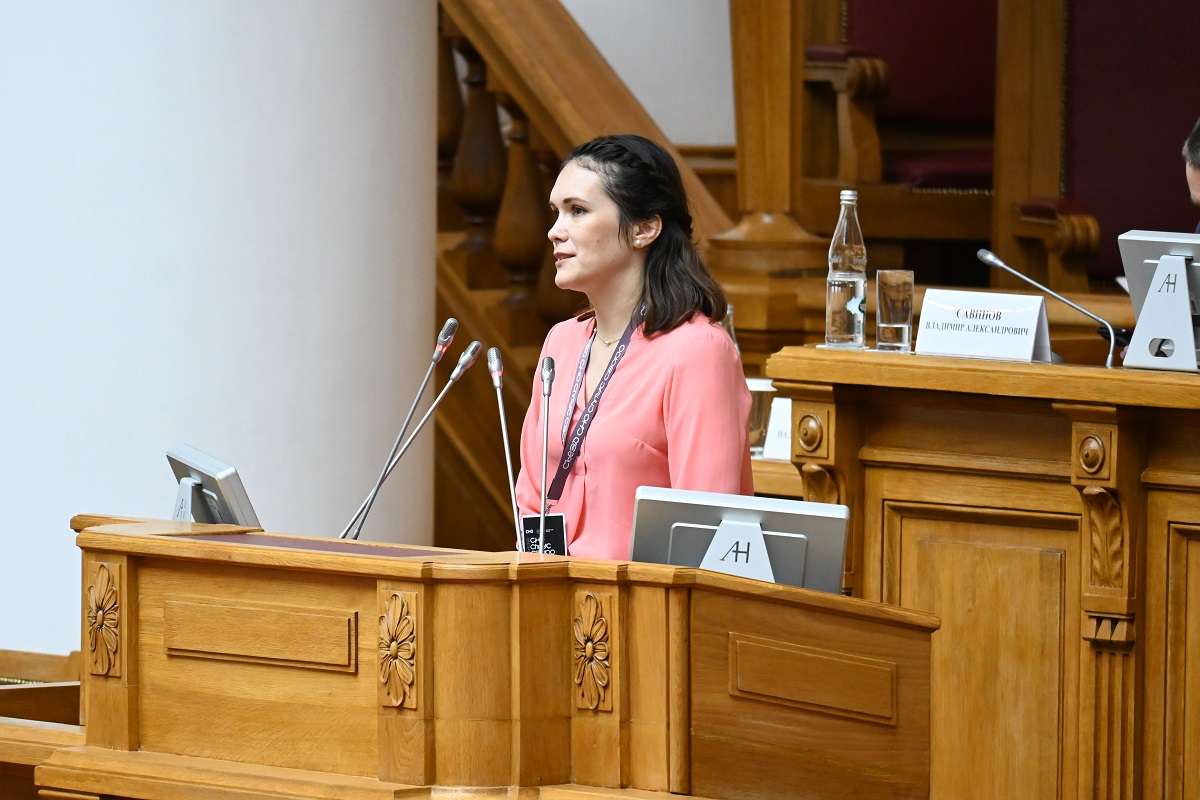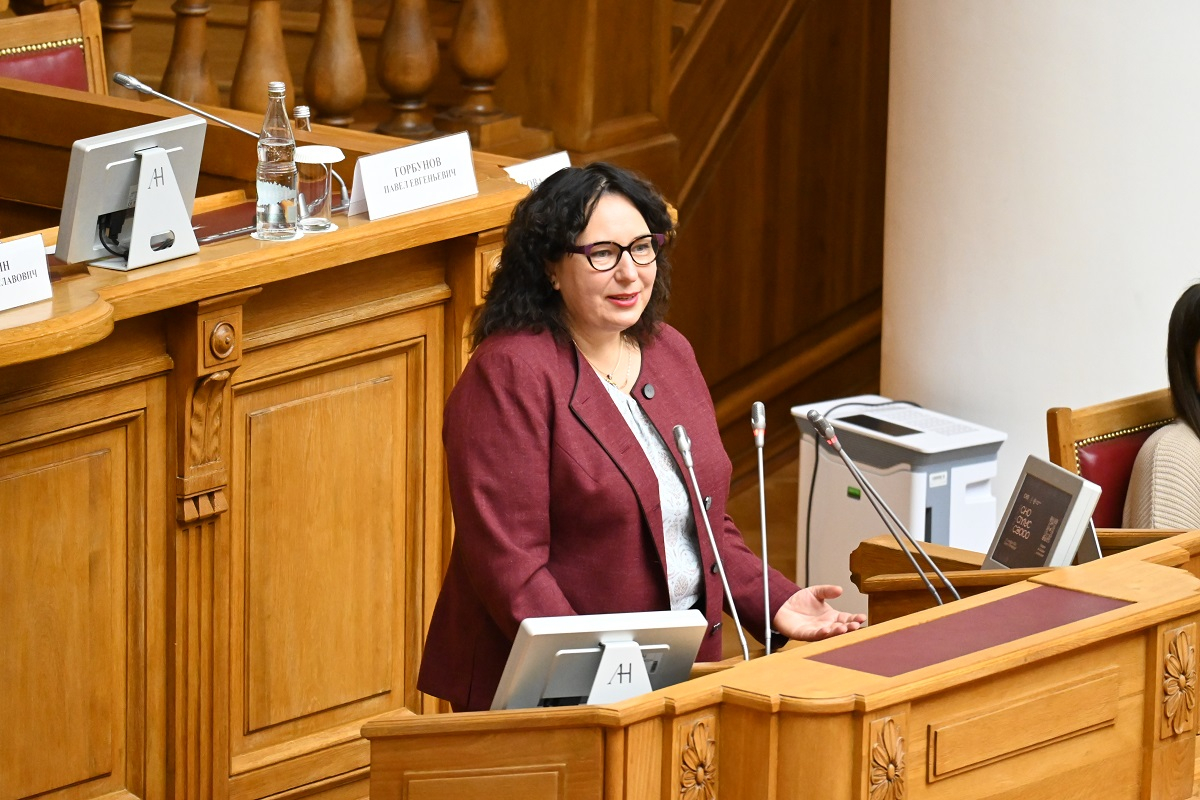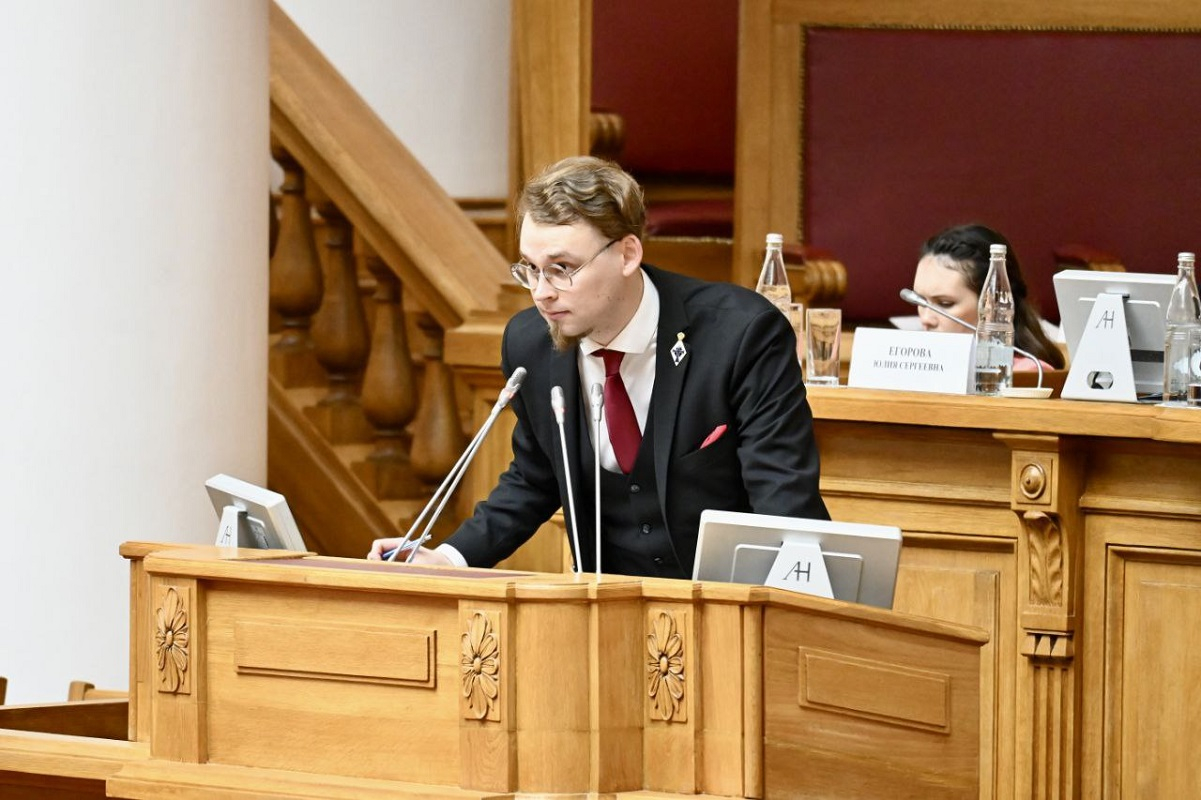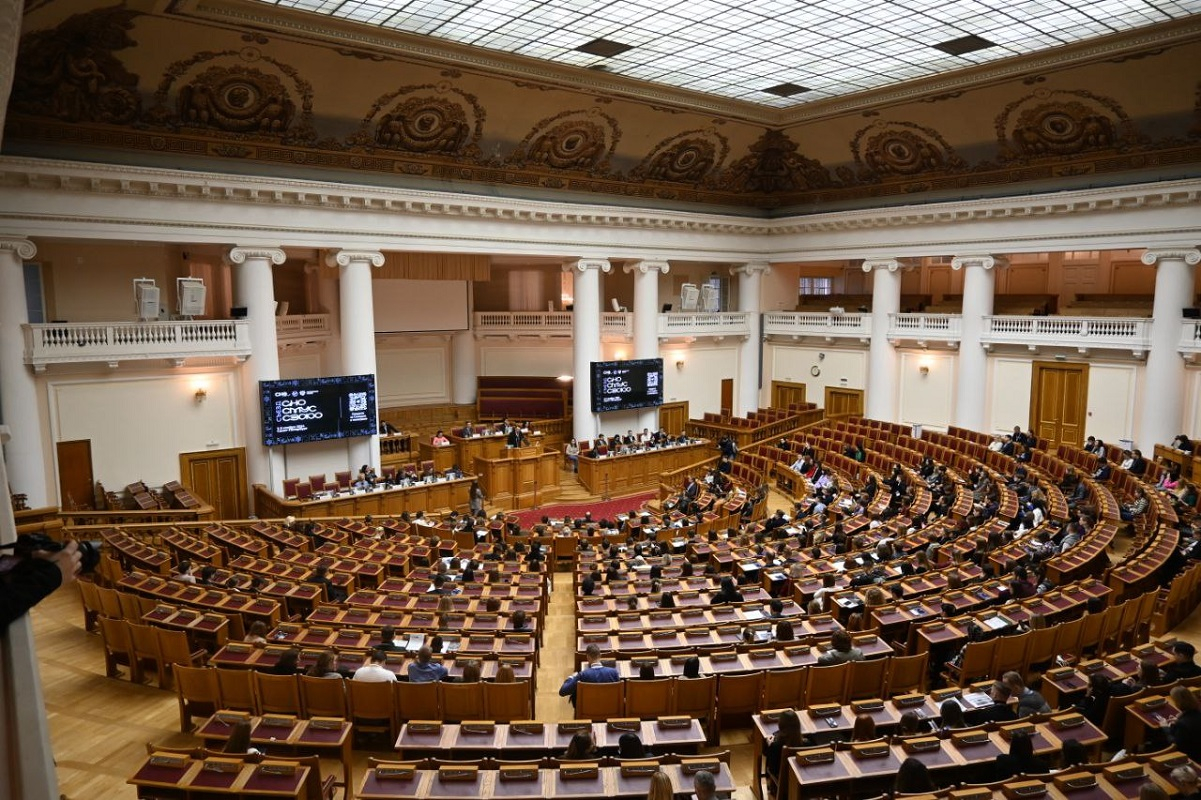More than 850 students from the Northwestern Federal District at the congress and conference of early-career researchers
In the Tauride Palace, the University’s Student Scientific Society has held the first Congress of Councils of Early-Career Researchers and Student Scientific Societies of the Northwestern Federal District. The event featured the 3rd International Scientific Conference of the St Petersburg University Student Scientific Society. The programme included lectures on how we can popularise science. It also includes discussions on cooperation between scholars and government and a presentation of the new journal "Vestnik of the St Petersburg University Student Scientific Society. Science of Society."
The key goal of the congress is to create the Association of Councils of Early-Career Researchers and Student Scientific Societies of the Northwestern Federal District, which will unite the efforts of researchers to jointly promote research initiatives, said Vladimir Savinov, Vice-Rector for Educational Activity at St Petersburg University. "Each of you can make a significant contribution to the development of student science. You can become not only an early-career researcher, but also an active participant in the scientific community, contributing to the strengthening of the scientific potential of the Russian Federation," added Vladimir Savinov.
The Vice-Rector’s words were supported by Pavel Gorbunov, Chairman of the St Petersburg University Student Scientific Society. He particularly focused on the need to ensure cooperation between scholars and the importance of developing an interdisciplinary approach in science. "Economists need models from mathematicians, chemists need models from economists, and linguists need machine learning. Therefore, as young researchers, we understand the fact that our research should cover related methods. The congress and conference became a true reflection of such interdisciplinarity," said Pavel Gorbunov.
The congress brought together 125 delegates from all regions of the Northwestern Federal District, including early-career researchers from various institutes of the Russian Academy of Sciences. Among the researchers were researchers from Belarus, India, Iran, China, Kazakhstan, Russia, Uzbekistan, and Japan.
At the plenary session, the delegates of the student scientific societies voted to approve members of the working bodies, adopt the regulations of the congresses and their organisation, and established the Association of Councils of Early-Career Researchers. Andrei Koshkin, a doctoral student at St Petersburg University, a member of the Academic Council of the University, and Deputy Chairman of the Council of Young Political Scientists of the Russian Association of Political Science, was elected president.
Andrei Koshkin drew attention to the fact that the University community is well represented in the governing bodies of the association. The University is also actively engaged in the development of the scientific potential of the region, he added.
In the year of the 300th anniversary of the University and the Russian Academy of Sciences, our event provides an opportunity for St Petersburg University to strengthen its role as a leading scientific and educational centre. More than a third of the elected members of the association board of the Association of Councils of Early-Career Researchers are employees and students of the oldest university in Russia.
Andrei Koshkin, a doctoral student at St Petersburg University, a member of the Academic Council of the University, and Deputy Chairman of the Council of Young Political Scientists of the Russian Association of Political Science
The newly elected president of the Association of Councils of Early-Career Researchers also called on the congress participants to actively participate in the work of the association in order to jointly create new opportunities for young researchers, improve the scientific environment and comprehensively approach the solution of problems important for the scientific and technological development of the country.
During the meeting, the participants also reviewed the rules for admitting new members to the organisation and the use of information technology in joint initiatives. Discussion of issues related to the structure and functioning of the association lead to the development of effective solutions to ensure transparency in the work of organisational bodies and to develop measures to attract students who are committed to promoting science and active participation in public life. The delegates expressed confidence that the results of the plenary session would create a solid foundation for future work of student scientific societies.
The conference included a presentation of the new scientific journal "Vestnik of the St Petersburg University Student Scientific Society. Science of Society." The presentation featured reports by Vadim Pashkus, Professor in the Department of Economic Theory and Economic Policy at St Petersburg University, and Andrei Koshkin, Editor-in-Chief of the journal "Vestnik of the St Petersburg University Student Scientific Society. Science of Society." Journals seek out and ensure that only high-quality articles are published, said St Petersburg University experts. According to Andrei Koshkin, reviewers and authors actively interact with each other. "The high demands that we set for authors can only be met by the openness and willingness of the authors to work with us," added Andrei Koshkin.
The first issue of the journal includes eight articles that cover research on contemporary socio‑political movements, energy security, post-Soviet media, and student scientific societies as youth organisations.
The new journal was highly appreciated by the student scientific societies of leading Russian universities, but also by young researchers from the USA, Sweden, Poland, Switzerland, Armenia, and India, whose works are presented in the first issue of the journal.
Vadim Pashkus, Professor of St Petersburg University, talked about the importance of ensuring active cooperation between student scientific societies and educators. Stronger teacher-student collaboration can contribute to high-quality research, advance scientific thought, and strengthen ties within the university community. "I hope that you will actively collaborate on the journal with members of student scientific societies and educators. When I see high-quality articles that I want to write good reviews for, I always feel a sense of joy from getting to know excellent material," said Vadim Pashkus. He also expressed hope that the journal will find a positive response from readers.


